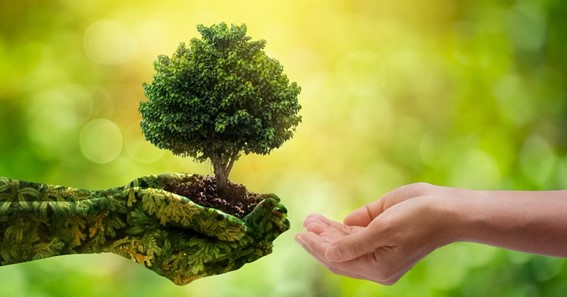Are you curious to know what is ecological balance? You have come to the right place as I am going to tell you everything about ecological balance in a very simple explanation. Without further discussion let’s begin to know what is ecological balance?
In our interconnected world, maintaining ecological balance is vital for the well-being of both humans and the environment. Ecological balance refers to the state of equilibrium and harmony among various organisms and their environments. It encompasses the intricate web of relationships and interactions that ensure the stability, resilience, and sustainability of ecosystems. In this blog, we will delve into the concept of ecological balance, its significance, and how we can strive towards achieving and preserving it.
What Is Ecological Balance?
Ecological balance is the delicate equilibrium that exists in nature, where organisms and their surrounding environment coexist and interact in a harmonious manner. It involves the dynamic interplay of biotic (living) and abiotic (non-living) factors, including plants, animals, microorganisms, soil, water, air, and climate. These elements are interconnected and interdependent, relying on one another for survival and functioning.
The Significance Of Ecological Balance:
- Biodiversity Conservation: Ecological balance is essential for preserving biodiversity, which refers to the variety of life forms in a particular habitat or on the planet as a whole. A balanced ecosystem supports a diverse array of species, ensuring the continued existence and evolution of plants, animals, and microorganisms.
- Ecosystem Stability: Ecological balance contributes to the stability and resilience of ecosystems. It helps maintain the cycling of nutrients, the regulation of populations, and the efficient utilization of resources. When ecosystems are in balance, they can better withstand disturbances such as natural disasters or human impacts.
- Climate Regulation: Ecosystems play a crucial role in regulating the Earth’s climate. Forests, for example, absorb carbon dioxide, a greenhouse gas that contributes to climate change. By maintaining ecological balance, we can help mitigate the effects of climate change and promote a more stable climate system.
- Provision of Ecosystem Services: Ecological balance supports the provision of ecosystem services that are vital for human well-being. These services include the purification of air and water, the pollination of crops, the regulation of water flow, and the provision of food, medicine, and raw materials.
Striving For Ecological Balance:
- Conservation and Restoration: Protecting and conserving natural habitats is essential for maintaining ecological balance. This includes preserving biodiversity hotspots, protecting endangered species, and restoring degraded ecosystems through reforestation, habitat restoration, and sustainable land management practices.
- Sustainable Resource Management: Practicing sustainable resource management is crucial for maintaining ecological balance. This involves using resources in a way that meets present needs without compromising the ability of future generations to meet their own needs. Sustainable practices include responsible fishing, sustainable agriculture, and efficient use of water and energy resources.
- Environmental Education and Awareness: Promoting environmental education and raising awareness about the importance of ecological balance is key to fostering a sense of responsibility and stewardship towards the environment. Encouraging sustainable practices at individual, community, and societal levels can contribute to a more balanced and harmonious relationship with nature.
- Collaboration and Policy Support: Collaboration among governments, organizations, communities, and individuals is crucial for achieving and preserving ecological balance. Governments can implement policies and regulations that promote sustainable practices and protect natural resources. Collaboration between stakeholders can lead to innovative solutions and collective action for environmental conservation.
Conclusion:
Ecological balance is a fundamental concept that highlights the intricate connections and dependencies within ecosystems. By understanding its significance and striving towards its preservation, we can ensure the well-being of both the natural world and ourselves. Conserving biodiversity, practicing sustainable resource management, promoting environmental education, and fostering collaboration are essential steps towards achieving and maintaining ecological balance. Let us embrace our role as custodians of the Earth and work together to nurture a balanced and sustainable future for all.
FAQ
What Is The Meaning Of Ecological Balance?
Ecological balance has been defined by various online dictionaries as “a state of dynamic equilibrium within a community of organisms in which genetic, species and ecosystem diversity remain relatively stable, subject to gradual changes through natural succession.” and “A stable balance in the numbers of each species …
What Is Ecological Imbalance Class 8?
Ecological imbalance is when a natural- or human-caused disturbance disrupts the natural balance of an ecosystem. The balance of an ecosystem can be disrupted by natural or human-caused disturbances. If a species disappears or a new species is introduced it can shift an ecosystem to a state of ecological imbalance.
What Is Ecological Balance 11th?
Ecological balance is a state of dynamic equilibrium within a community of organisms in a habitat or ecosystem. It can happen when the diversity of the living organisms remains relatively stable.
Why Is Ecological Balance Important?
Why is ecological balance important? Ecological balance is important for the health and stability of an ecosystem. In order for living organisms to coexist in a relatively stable state with the environment, systems of cycling and balance must keep the ecosystem sustainable.
I Have Covered All The Following Queries And Topics In The Above Article
Example Of Ecological Balance
Discuss The Importance Of Ecological Balance In Nature Class 6
What Is The Term Used To Refer To These Non-Native Species That Can Alter The Ecological Balance?
How To Maintain Ecological Balance
What Is Ecological Balance Why Is Ecological Balance Important
The Importance Of A Balanced Ecosystem Essay
What Happens When An Ecosystem Is In Equilibrium
How To Maintain Ecological Balance Of The Environment
What Is Ecological Balance
What is ecological imbalance in a short answer
What is ecosystem balance?
